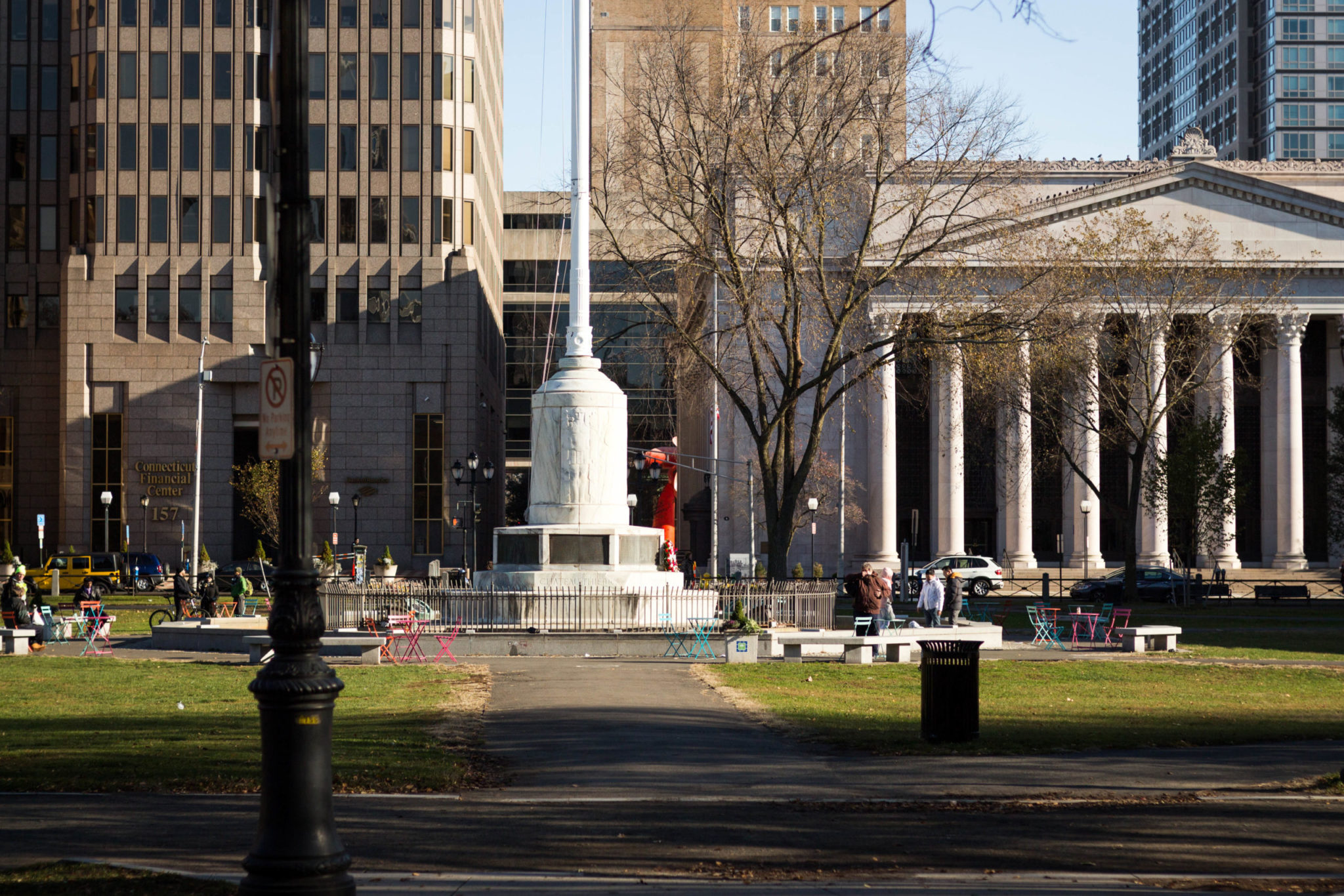Three New Haven residents sue Trump administration over revoked student visas
Over a dozen lawsuits allege international students across the country lost visas without due process, often over minor or dismissed criminal charges or for no apparent reason at all.

Daniel Zhao
Three New Haven residents whose student visas were terminated are suing the federal government.
The lawsuit, filed by 133 anonymous individuals, alleges that terminations of students’ records in the Student and Exchange Visitor Information System, or SEVIS, violated the Fifth Amendment right to due process and the Administrative Procedure Act — which states that federal agency actions are unlawful when they are “arbitrary” or “in excess of statutory jurisdiction, authority, or limitations.”
When a student’s SEVIS status is terminated, Immigration and Customs Enforcement agents “may investigate to confirm the departure of the student” from the United States, according to a Department of Homeland Security webpage.
The three New Haven-based plaintiffs, all Indian natives, according to the complaint, each had faced criminal charges in the last two years that were since dismissed. Charles Kuck, the attorney representing the suit’s 133 plaintiffs, said he “cannot confirm or deny” whether the three students are affiliated with Yale or a different New Haven university.
According to multiple lawsuits filed in the last two weeks across the country, which were reviewed by the News, many students are losing their visas or SEVIS records for minor criminal records, dismissed charges or arrests that did not lead to charges.
“Our kids are terrified, right? They think ICE might show up tomorrow, they’re afraid to leave their apartment. They left their jobs. They want to buy tickets to leave,” Kuck said. “This is a horrific act by this administration to abuse the student visa system in a way to disrupt lives of legal immigrants.”
One of the plaintiffs from New Haven was scheduled to graduate in May 2025 but was informed on April 8 that his student visa had been revoked. In 2024, he was charged with “driving without a license, failure to keep right, improper license, failure to insure vehicle, and an unregistered vehicle,” but all charges were later dismissed, according to the lawsuit.
The two other plaintiffs living in New Haven completed their degrees but remain in the U.S. on student visas through the post-graduation Optional Practical Training program, which allows students on F-1 visas to stay in the U.S. for up to one or three years for work after graduation.
One of the two was arrested for evading the scene of a motor vehicle accident, according to the complaint, though the charge was dismissed. The other had been arrested for domestic violence-related charges, but his case was dismissed on April 8 after he completed a diversionary program.
The lawsuit includes a fourth Connecticut-based plaintiff, a native of China scheduled to graduate from the University of Connecticut in August. The student learned his F-1 student status was terminated on April 9. The student had been arrested in 2017 after a “domestic dispute,” but the charges against him were dismissed in 2018, the complaint states.
According to Ramis Wadood, an attorney at the American Civil Liberties Union of Michigan who represents four students facing SEVIS record terminations in a separate lawsuit, most students around the country have received no explanation for why their SEVIS records were terminated, and did not have an opportunity to appeal the decision.
In a Monday court filing in a similar case filed in Michigan, the government’s attorney argued that termination of a student’s SEVIS record does not mean that they lose their lawful non-immigrant status in the country.
When a student’s SEVIS record is terminated, they lose their work authorization for on- and off-campus employment, according to a DHS webpage. If the student is outside of the U.S. at the time of the termination, they are not able to reenter the U.S. through the terminated record. If the SEVIS record is terminated due to “any violation of status,” the student must leave the U.S. “immediately” or else apply for reinstatement.
“It’s just a moment of immense chaos and concern for the students, where they need clarity from some direction, whether it’s from the government, from the courts, from the universities,” Wadood said. “They deserve clarity about their futures.”
The plaintiffs in the 133-student lawsuit have filed a motion for a temporary restraining order, which could protect the plaintiffs from being detained by federal immigration agents. At an evidentiary hearing on Thursday, a judge ordered that the motion would be “taken under advisement” — or ruled on at a later date after the judge reviews arguments and evidence, according to online court records.
On Thursday, a judge in Indiana denied a motion for a temporary restraining order in a case involving seven international students whose statuses had been terminated. The judge’s denial order argues that “under Supreme Court precedent, ‘some possibility’ of deportation is not enough to show irreparable harm” — the standard for granting a temporary restraining order.
Since early April, at least 1,489 individuals on student visas learned their SEVIS records were terminated, according to Inside Higher Ed. In Connecticut, at least 50 students have been affected.
On Thursday, Ozan Say, the director of Yale’s Office of International Students and Scholars, confirmed that four Yale students have been affected by SEVIS terminations. Say declined to specify whether that count includes former students on Yale-sponsored Optional Practical Training, citing concerns for students’ privacy.
The News identified at least 16 lawsuits representing nearly 200 plaintiffs whose SEVIS records or student visas were terminated.
The case involving the New Haven-based plaintiffs was filed on April 11 in the federal court for the Northern District of Georgia, where the first four of the anonymous plaintiffs reside.
Jaeha Jang contributed reporting.
Interested in getting more news about New Haven? Join our newsletter!







